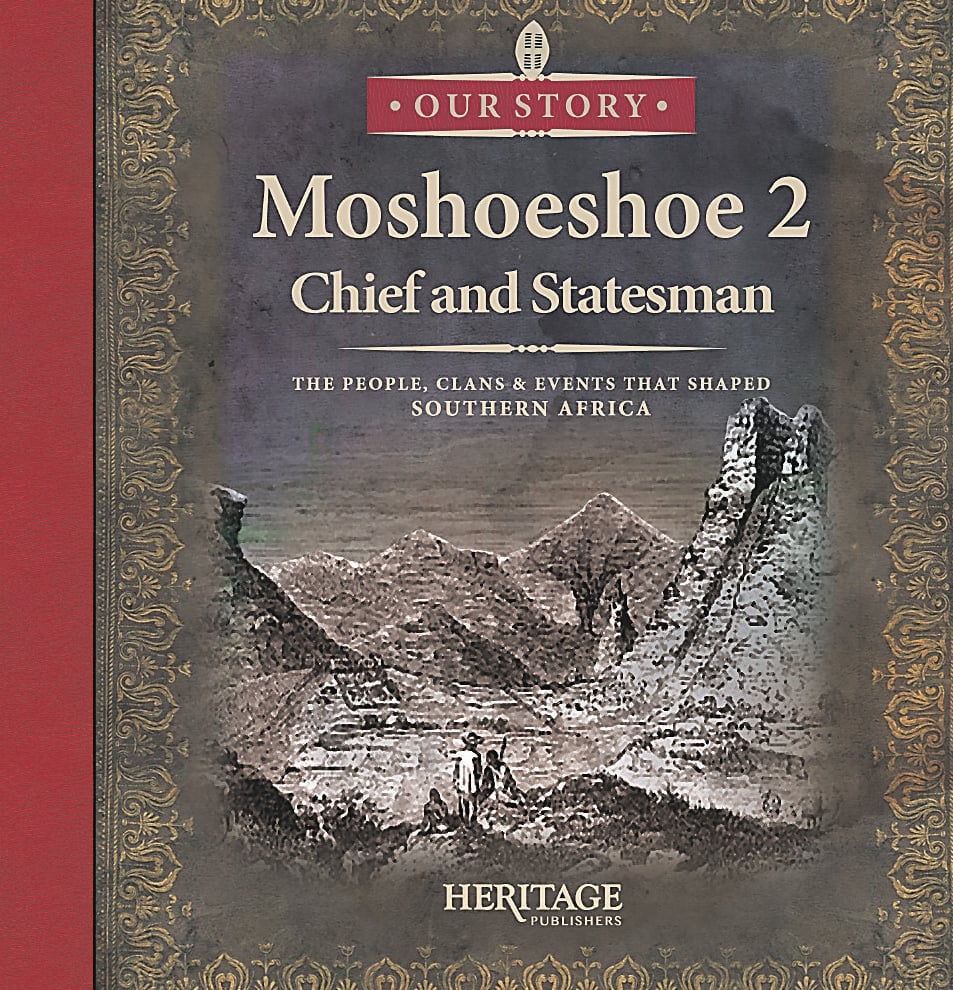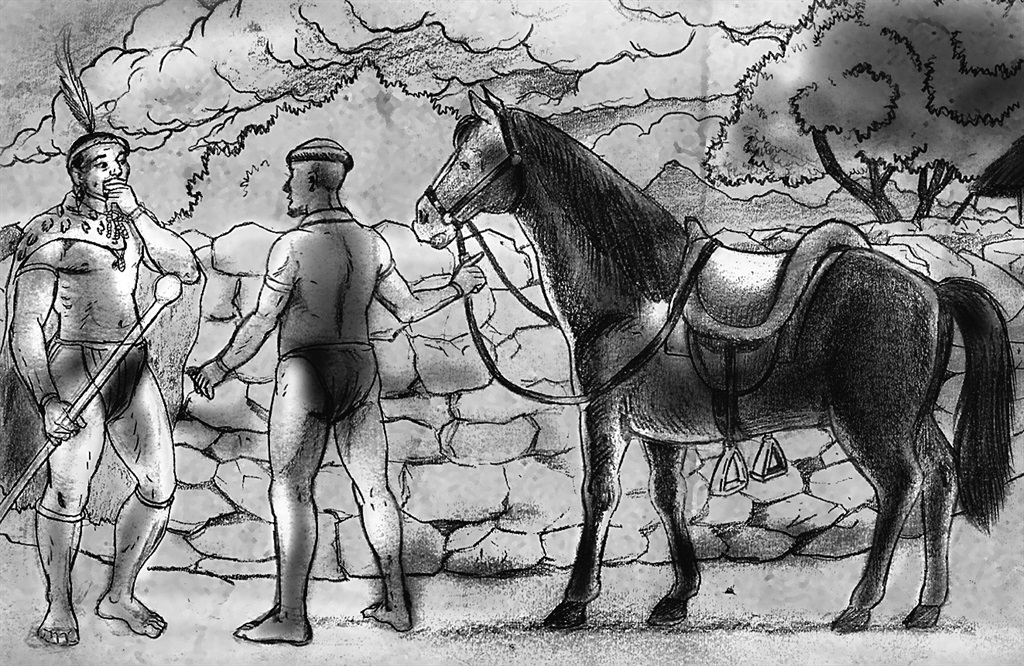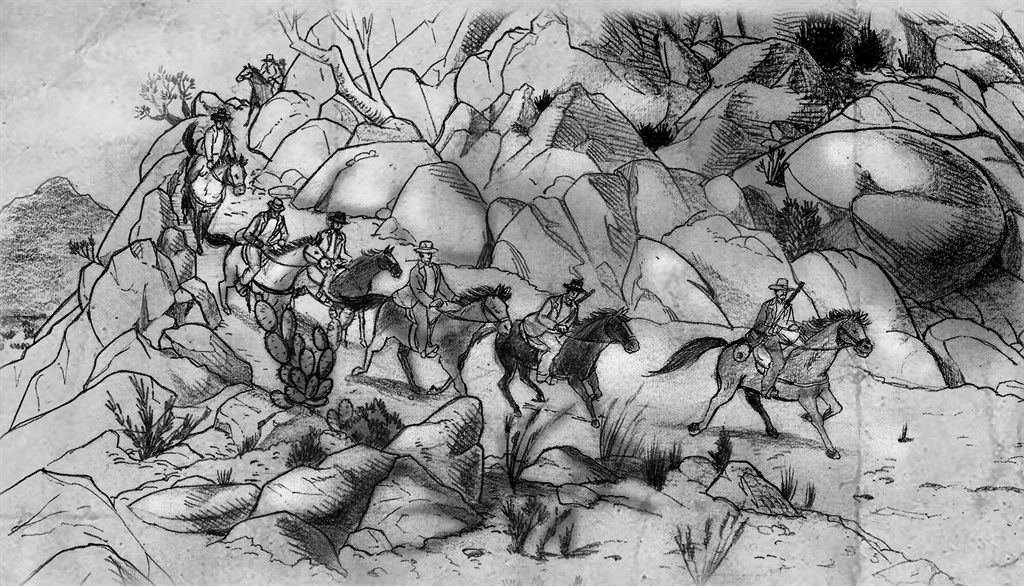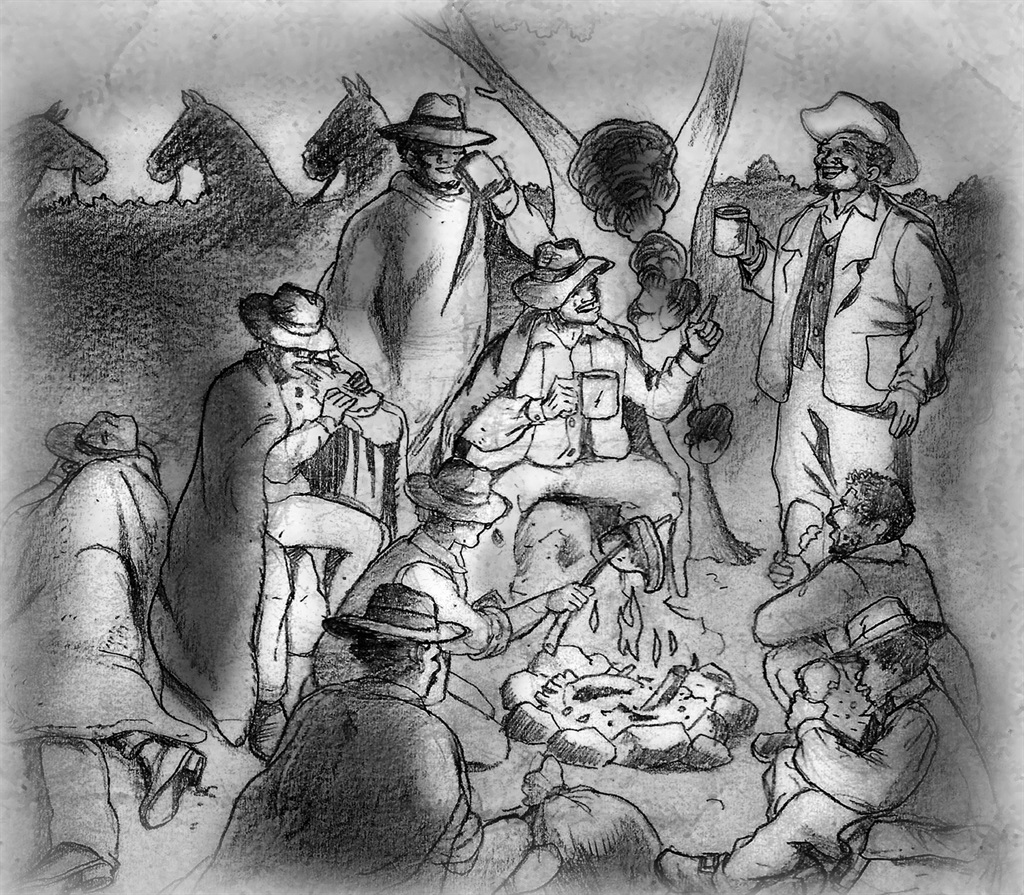
48 pages, illustrated R100
By the summer of 1829, about 5 000 people were living on or around Thaba Bosiu, under the rule of Moshesh. Because of the similar nature of the tribes, most of the people started referring to themselves as Basotho or Sotho people, and to Moshesh’s kingdom as Lesotho. Gradually, the clan name Bamokoteli fell into disuse.
At that time, Moshesh was given a horse. It was the first horse he had ever come across. Lipholo, Moorosi’s dignitary who presented the animal to Moshesh, explained that it had been taken from a white man near Dordrecht. At first, Moshesh rode the horse holding long poles like walking sticks to stabilise himself. He soon, however, became a skilled rider.
During that period, among the many newcomers to Thaba Bosiu was Chief Letele, son of the seer, Mahlomi. Soon Moshesh fell out with his brothers, Poshuli and Makhabane, over his generosity in giving Letele’s brother a large number of livestock. Unhappy about the gift, Moshesh’s brothers secretly went and forcibly brought back the animals. When Letele insisted that Moshesh’s brother Poshuli be executed because he had illegally retaken the livestock, he was furious when Moshesh refused. “Thaba Bosiu is a place of peace, not a hyena’s lair,” Moshesh said by way of explaining his decision not to kill Poshuli.
As a result, Letele gathered his people and angrily led them down the Khubela Pass, headed for Thabana Morena. There he tried to persuade Chief Mojakisane to join him in overthrowing Moshesh. But the disinterested leader ignored Letele, so he moved on. It wasn’t long before he linked up with a band of cut-throats, known as the Koranna, and their leader, Hendrik Hendriks.
The Koranna had once lived in parts of the Cape Colony until they had come into conflict with the colonial justice system. They then migrated northwards, driving huge herds of cattle, sheep, goats and horses they had stolen from Boer farmers and Xhosa chiefs. They were a mixed-race group who spoke Dutch and dressed in European clothes. The Koranna settled beyond the Orange River. They were often seen on the Colony’s northern frontiers, where they traded stock for arms and ammunition.
The Koranna eventually split into groups of bandits. During the Difaqane wars, they haunted the plains of South Africa, mercilessly murdering and robbing the Sotho-speaking clans. In 1830, not long after Letele left Thaba Bosiu, Moshesh came face to face with them. It was his first battle with an enemy on horseback who carried guns.
When Letele met up with Hendriks, he eventually convinced him to invade Lesotho. They set out for Thaba Bosiu with a large band of his rough men. When they got close, they camped on Qeme hill. They started filling themselves up on goats’ meat and sorghum beer.
What the Koranna did not know was that Moshesh had been warned of their attempted attack. Moshesh sent warriors under the command of the capable Makwanyane to deal with the Koranna. The Basotho arrived at Hendriks’ camp under cover of darkness, to find his men either drunk or sleeping. They attacked the unprepared Koranna, killing most of them without a single shot being fired. However, Hendriks and a servant, Rolf Dikoor, managed to escape unnoticed into the darkness.
The failure of Hendriks’ little adventure created anxiety among the various Koranna settlements. None of them could accept that armed Koranna on horseback could have been slaughtered by Moshesh’s Basotho, carrying only assegais, battle axes and sticks. One of the Koranna leaders, Pii, was so enraged that he decided to attack Thaba Bosiu. No one outside his own gang would support him, but this did not seem to bother him.
When he reached Lesotho, Pii pitched camp in a valley not far from the Mokhachane Pass. But again, before the Koranna could organise and prepare, they were attacked by the Basotho led again by the formidable Makwanyane. Pii’s Koranna were well and truly beaten. Most of them managed to mount their horses and ride away, but many were killed before they could escape.
After their successes against the Koranna, the Basotho tended not to take the threat they posed too seriously. At least until a commando of Koranna under Piet Witvoet also stole three hundred of Moshesh’s best cattle from a cave near Thaba Bosiu. They also murdered many herdsmen in the attack.
News of the successful raid and the death of many of his men filled Moshesh with worry. He realised that as long as the Koranna saw the Basotho as enemies, Thaba Bosiu and his people were going to be vulnerable to attack. As was his usual way, he decided to try and win their friendship. But he was refused at every turn. Many of his messengers were killed, and some never even reached their destinations to deliver messages.
. To buy the books, ask your nearest bookseller to order copies if they do not stock the series, or contact the publishers at info@saheritagepublishers.co.za
. For a full list of titles in the series, visit saheritagepublishers.co.za
. For updates and more information, follow Our Story on Facebook at facebook.com/ancestorstories or on Twitter at @saheritagepub
Our competition is now closed. Congratulations to last week’s winner, Bubbles Busakwe from King William’s Town.
ANSWER: Pewter and lead




 Publications
Publications
 Partners
Partners

















